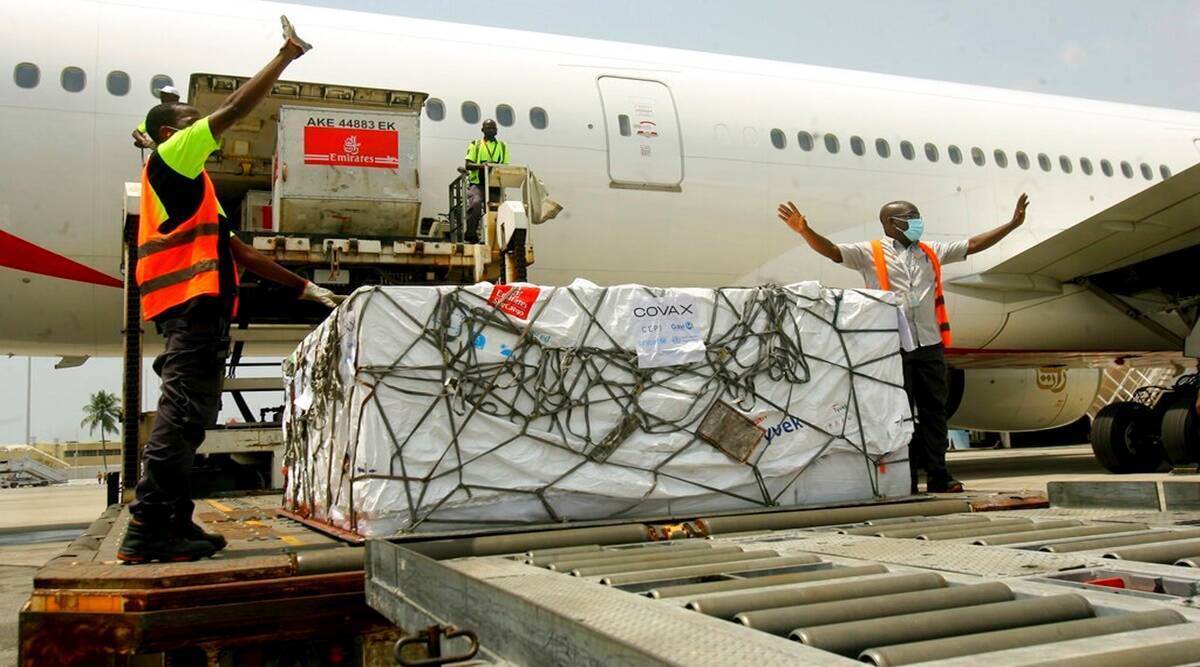No, India’s vaccine exports have not hampered domestic Covid fight
No, India’s vaccine exports have not hampered domestic Covid fight
Sambit Patra writes: On the contrary, helping the rest of the world reach inoculation targets is good diplomacy, good economics and good epidemiology.
Updated: May 14, 2021 9:35:13 am Having India’s immediate neighbours vaccinated is essential for India’s own pandemic control measures.
Having India’s immediate neighbours vaccinated is essential for India’s own pandemic control measures.
It is unfortunate that when the country is fighting a battle against Covid, certain vested interests are building up a fake narrative on the issue of vaccines exported by the government of India.
Let us look at some facts. As on May 11, India exported 663.698 lakh vaccine doses to foreign countries. At the same time, about three times as many vaccine doses have been administered within India. Out of the exports, only 107.15 lakh vaccine doses have been sent as aid. That is, just about 16 per cent of the total exports. The remaining 84 per cent vaccine supplies fall in two categories.
About 54 per cent of the total exports — 357.92 lakh vaccine doses — have been sent as commercial supplies by two vaccine manufacturers (Serum Institute of India and Bharat Biotech). In addition, 198.628 lakh vaccine doses (30 per cent of the total supplies) have been sent for the WHO’s COVAX facility by Serum Institute of India. Both these categories fulfil the contractual obligations of vaccine manufacturers. While the government may have given the necessary permissions, it is erroneous to suggest that it could have completely stopped these supplies.
It is important to look at each of these in detail to address the myth of India having exported vaccines to the world while neglecting its own citizens.
First, the vaccines sent as aid, have been overwhelmingly sent to India’s own neighbourhood. Out of the 107.15 lakh doses, 78.5 lakh doses (73.26 per cent) have been sent to just seven neighbouring countries. This is not just good diplomacy, but it is also good epidemiology. Having India’s immediate neighbours vaccinated is essential for India’s own pandemic control measures.
About two lakh doses have been sent to the UN Peacekeeping, in whose operations about 6,600 Indian personnel are currently deployed. Again, not just diplomacy, but also pragmatism.
Next, the commercial supplies: About 14 per cent of the commercial supplies have gone to the UK, which is where the Oxford-AstraZeneca vaccine (Covishield in India) licence is from. What would happen if the licence manufacturer refuses to supply the licensee?
Major commercial supplies (about 12.5 per cent) have also been sent to Saudi Arabia, which is home to a large diaspora of Indians which is being administered the vaccines free of cost by the Saudi authorities.
This brings us to the last category, that of supplies to the COVAX facility of WHO, which are also commercial obligations of SII (Bharat Biotech is not a part of this). COVAX was created as a joint initiative of WHO, Gavi and CEPI, with UNICEF as a key delivery partner, to pool global resources to speed up vaccine research, manufacturing, and supply equitably around the world. In return for participating, India was assured a certain quantum of Covid vaccines at an affordable price. This was done when there was no guarantee that a cheap vaccine would be manufactured, or that it would be manufactured in India. In fact, India itself is to be the recipient of nearly 97 million doses of Covishield through the COVAX facility.
No country can afford to be an island, cut off from the rest of the world. The end user simply sees a vaccine vial and assumes that it is completely made in India. But Indian vaccine manufacturers rely on dozens of countries to source various input materials. Those countries, in turn, rely on others to produce the input materials. A vast and complex supply chain spans the globe before a single dose of vaccine can be administered. To simply look at the end product, and expect that India can put a sudden stop to exports is juvenile and dangerous.
India should, in fact, make an open and public commitment to supply a certain percentage of production as commercial/COVAX exports, so that other countries can plan and execute their own vaccination drives in a systematic manner. This will be good diplomacy, good economics and good epidemiology.
Meanwhile, to ramp up the vaccine production domestically, support at multiple levels is being provided to vaccine manufacturers. Support is also being given for private and public sector manufacturing facilities to make them ready for enhanced capacities to support the vaccine production — including facilities of Bharat Biotech as well as Indian Immunologicals in Hyderabad, Haffkine Biopharmaceuticals in Mumbai and Bharat Immunologicals and Biologicals in Bulandshahr. With a support of approximately Rs 200 crore, it is proposed that the current manufacturing rate of Covaxin of 10 million doses/month will be enhanced by 10 times in the coming months.
To fast-track the entry of foreign-made Covid vaccines into India, the central government has provided special regulatory dispensation to provide emergency use authorisation to Covid vaccines approved for emergency use by credible foreign regulators.
In a nutshell, the export of Covid-19 vaccines by the Narendra Modi government is not mutually exclusive from the availability of these vaccines in India for the domestic population. Rather, they are complementary to each other

Comments
Post a Comment